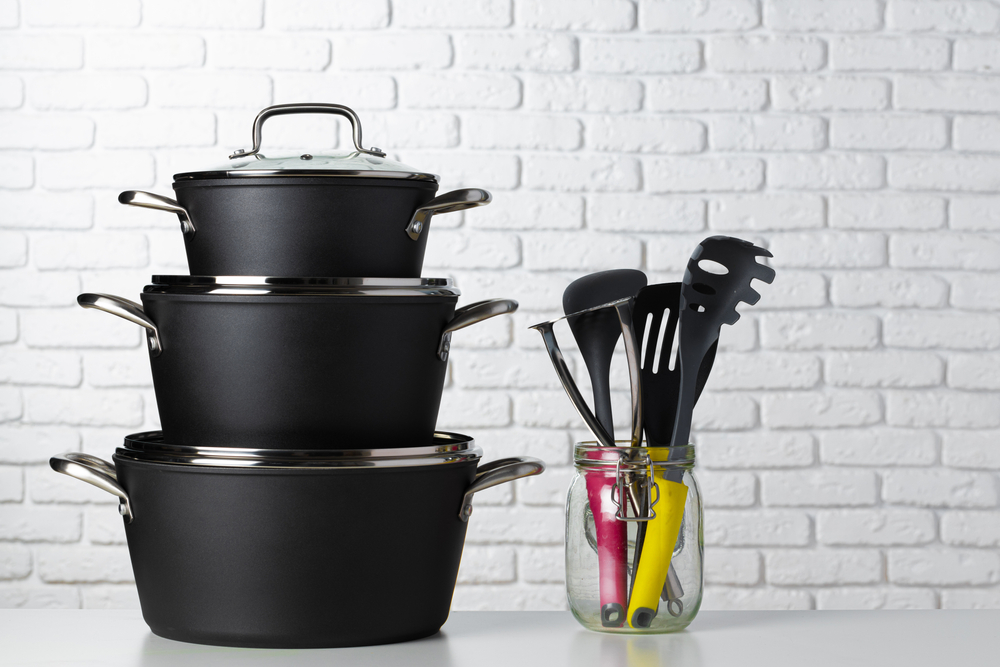Sustainability is becoming a priority for households everywhere, and the kitchen is a great place to start. Adopting eco-friendly practices not only helps the environment but also saves money in the long run. From reducing waste to choosing reusable products, here are some sustainable kitchen hacks that can make a big difference in your everyday life.
1. Ditch Paper Towels for Reusable Dish Towels

One of the simplest ways to make your kitchen eco-friendly is to swap disposable paper towels for reusable dish towels. Dish towels are a versatile and sustainable alternative that can be used for drying dishes, wiping counters, or even wrapping produce to keep it fresh. By making this switch, you can significantly reduce waste while also saving money over time.
Modern dish towels are designed to be both functional and stylish, offering countless benefits beyond their basic purpose. In fact, they’ve evolved to become more than just kitchen necessities, serving as decorative accents and even conversation starters.
Dish towels also reduce dependency on single-use products, making them a practical choice for households looking to minimize their environmental impact. They’re washable and reusable and made from biodegradable and sustainable materials, such as cotton or bamboo. With proper care, they can last for years, adding value and reducing your kitchen’s carbon footprint.
2. Opt for Glass and Stainless Steel Storage Containers

Replace single-use plastic containers and bags with durable glass or stainless steel storage options. These materials are not only safer for food storage but also last much longer, reducing the need for frequent replacements. Glass containers are ideal for meal prep, as they can go from fridge to oven, while stainless steel is lightweight and perfect for on-the-go use.
While convenient, plastic containers often degrade over time, releasing harmful chemicals into food. Glass and stainless steel, on the other hand, are non-toxic and environmentally friendly. By investing in these durable options, you’ll reduce plastic waste that contributes to pollution and harms marine life.
Additionally, these containers add a touch of elegance to your kitchen. Glass jars, for instance, can double as decorative pieces when used to store dry goods like pasta, rice, or spices. Stainless steel containers are sleek and modern, making them an excellent choice for any kitchen aesthetic.
3. Compost Your Food Scraps

Instead of throwing food scraps in the trash, consider composting them. A countertop compost bin makes it easy to collect peels, cores, and other organic waste throughout the day. Composting reduces the volume of waste sent to landfills and creates nutrient-rich soil for your garden.
When food scraps are thrown into landfills, they contribute to methane gas emissions, which are a significant contributor to climate change. Composting diverts this waste and turns it into something valuable. Even if you don’t have a garden, many communities offer compost drop-off programs or curbside pickup services, making it easier than ever to participate.
If space is a concern, consider using compact composting systems like vermicomposting, which uses worms to break down organic material. These systems are odor-free and fit perfectly into urban apartments, allowing anyone to adopt this sustainable practice.
4. Invest in Eco-Friendly Cleaning Supplies

Traditional kitchen cleaning products often contain harsh chemicals that can harm the environment and your health. Switch to eco-friendly alternatives made from natural ingredients, or try DIY solutions using household items like vinegar and baking soda. Pair these cleaners with reusable cleaning cloths or sponges made from biodegradable materials to minimize waste further.
Eco-friendly cleaning products are not only better for the environment but also safer for your family. They reduce exposure to toxins and can be just as effective as their chemical-laden counterparts. Many brands now offer refillable cleaning solutions, further cutting down on plastic waste.
Reusable cleaning cloths, such as those made from bamboo fiber, are another sustainable alternative. These cloths are highly absorbent, durable, and compostable at the end of their life. By replacing disposable wipes and synthetic sponges, you can create a greener cleaning routine that aligns with your sustainability goals.
5. Use Beeswax Wraps Instead of Plastic Wrap

Beeswax wraps are a game-changing alternative to single-use plastic wrap. Made from cotton infused with beeswax, they are reusable, washable, and biodegradable. Use them to cover bowls, wrap sandwiches, or store cut fruits and vegetables. Their natural composition keeps food fresh without contributing to the growing problem of plastic pollution.
Beeswax wraps come in various sizes and patterns, making them both functional and attractive. They are easy to clean—simply rinse with cool water and mild soap—and can last for up to a year with proper care. At the end of their life cycle, they can be composted, ensuring zero waste.
Using beeswax wraps reduces plastic use and inspires others to adopt sustainable habits. They’re a small but impactful change that aligns with eco-conscious living.
6. Choose Sustainable Cookware

Investing in sustainable cookware is another step toward an eco-friendly kitchen. Look for pots and pans made from recycled materials or those designed to last a lifetime, such as cast iron or stainless steel. Non-stick coatings often wear out quickly and may contain harmful chemicals; instead, opt for natural finishes like seasoned cast iron or ceramic coatings.
Sustainable cookware reduces the need for frequent replacements, reduces waste, and conserves resources. Many brands now offer ethically sourced and eco-friendly cookware options, ensuring that your kitchen is both functional and environmentally responsible.
Incorporating these simple and sustainable practices into your kitchen routine can significantly impact the environment while enjoying a more efficient and cost-effective household. Every small change adds to a greener lifestyle, from reducing paper waste with kitchen tea towels to rethinking your storage solutions. Let your kitchen become a hub of sustainability and style!





